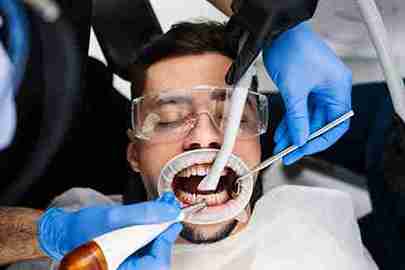Dental Health: Building the Foundation for a Healthy Smile and Body

Dental health is more than just having white teeth. It’s about the overall condition of your teeth, gums, and mouth, which all play a major role in your body’s health. Many people don’t realize that poor dental care can lead to problems far beyond cavities—it can contribute to infections, gum disease, and even issues with the heart and immune system.
Taking care of your dental health is about consistency and awareness. Let’s break down why oral hygiene is so important, what common issues people face, and the habits that can help you maintain strong teeth and gums for life.
Why Dental Health Matters
Your mouth is the entry point for food, drink, and air, which means it also comes into contact with countless bacteria every day. When oral hygiene is neglected, bacteria can multiply and lead to gum disease, tooth decay, or infections. Beyond the mouth, these bacteria can enter the bloodstream and affect other parts of the body.
Good dental health provides multiple benefits:
- Better digestion – Chewing food properly supports nutrient absorption and overall digestion.
- Disease prevention – Healthy gums and teeth reduce the risk of infections spreading.
- Confidence boost – A clean, healthy smile improves self-esteem in social and professional settings.
- Pain prevention – Proper oral care helps you avoid discomfort from cavities, infections, or sensitivity.

Common Dental Issues
Even with advancements in dental care, many people experience common oral health problems:
- Tooth decay – Caused by plaque buildup, leading to cavities if not cleaned properly.
- Gum disease – Inflammation of the gums that can progress to tooth loss if ignored.
- Bad breath – Usually linked to bacteria or poor oral hygiene habits.
- Tooth sensitivity – Pain when eating hot, cold, or sweet foods due to enamel wear.
- Mouth infections – Sores or abscesses that cause pain and discomfort.
Recognizing these issues early can prevent more serious complications.
Habits for Healthy Teeth and Gums
Maintaining good dental health doesn’t require complex steps—it’s about building small daily habits.
1. Brush Correctly and Regularly
Brushing at least twice a day removes plaque and food particles. Gentle circular motions work better than hard scrubbing, which can damage enamel and irritate gums.
2. Floss Every Day
Flossing clears out food particles and bacteria from between teeth—spots that a toothbrush cannot reach. Skipping flossing often leads to gum issues and hidden cavities.
3. Eat for Oral Health
Sugar and acidic foods feed harmful bacteria and wear down enamel. A diet rich in fruits, vegetables, whole grains, and proteins supports both dental and overall health.
4. Drink Enough Water
Water washes away food particles, keeps your mouth moist, and helps produce saliva, which naturally protects teeth.
5. Avoid Harmful Habits
Chewing hard objects, smoking, or grinding teeth can weaken enamel and damage gums over time. Being mindful of these behaviors prevents long-term issues.
Dental Health and Overall Well-being
Your oral health is directly connected to your general health. Studies show that gum disease is linked to heart problems, diabetes, and respiratory conditions. Oral infections may even weaken your immune system. In many cases, early symptoms of chronic illnesses appear first in the mouth, making dental care an important part of preventive health.
Practical Tips for Strong Dental Health
- Replace your toothbrush every 2–3 months for effective cleaning.
- Rinse your mouth with water after meals to reduce bacteria buildup.
- Pay attention to signs like bleeding gums, persistent bad breath, or tooth pain.
- Balance oral hygiene with overall lifestyle—stress, poor sleep, and dehydration can affect your teeth and gums.
Myths About Dental Care
There are several misconceptions about dental health that often confuse people. Let’s clear up some of the most common myths:
- Myth 1: Brushing harder cleans better. Truth: Hard brushing damages gums and enamel.
- Myth 2: Only sweets cause cavities. Truth: Cavities result from a combination of poor hygiene, bacteria, and diet.
- Myth 3: Oral health is separate from body health. Truth: Dental health is closely tied to heart, digestion, and immunity.
The Role of Consistency
Good dental health doesn’t come from a single effort—it’s built over time. Small, consistent habits such as brushing, flossing, eating wisely, and avoiding harmful practices are the real foundation for strong oral health. Preventing dental issues is always easier, less painful, and more affordable than treating them later.
Conclusion
Dental health is not just about appearance—it’s about protecting your body from disease, maintaining comfort, and living with confidence. By practicing daily habits like brushing, flossing, staying hydrated, and eating a balanced diet, you can maintain strong teeth and gums naturally. Remember, your mouth is the gateway to your overall health, and caring for it is one of the best investments you can make in yourself.



